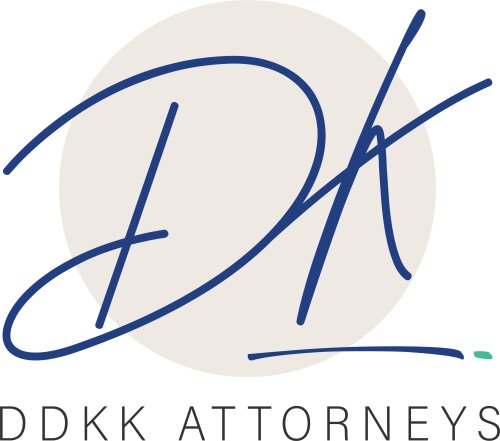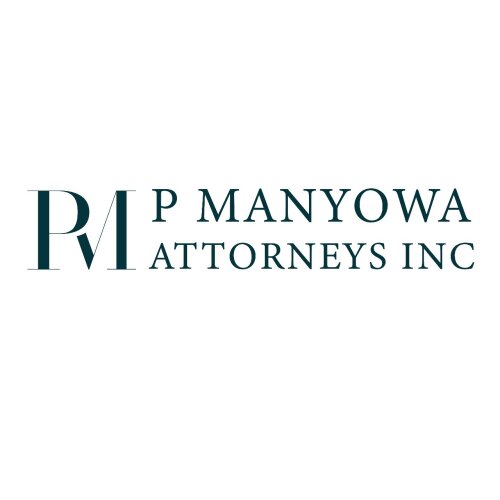Best ADR Mediation & Arbitration Lawyers in Polokwane
Share your needs with us, get contacted by law firms.
Free. Takes 2 min.
List of the best lawyers in Polokwane, South Africa
South Africa ADR Mediation & Arbitration Legal Articles
Browse our 1 legal article about ADR Mediation & Arbitration in South Africa written by expert lawyers.
- Resolving Cross-Border Commercial Disputes in South Africa
- Mandatory Consideration: Uniform Rule 41A requires all litigants in the South African High Court to consider mediation before proceeding to trial, making it a standard step in cross-border disputes. Enforceability: Settlements reached through mediation can be made an order of the court, giving them the same legal weight and enforcement... Read more →
About ADR Mediation & Arbitration Law in Polokwane, South Africa
Alternative Dispute Resolution (ADR) in Polokwane, South Africa, primarily involves mediation and arbitration as mechanisms for resolving disputes outside the traditional court system. These processes offer parties in conflict a chance to settle their differences through collaborative dialogue or by having an impartial third party render a decision. ADR is favored for its ability to reduce legal costs, expedite resolution, and maintain privacy compared to litigation. In Polokwane, ADR is increasingly recognized in various sectors, including commercial, labor, and family law, as a viable means to resolve disputes amicably.
Why You May Need a Lawyer
Engaging a lawyer in ADR processes, such as mediation and arbitration, can significantly impact the outcome of your case. Here are some common situations where legal assistance might be necessary:
- Complex contract disputes requiring a thorough understanding of legal interpretations and implications.
- Labor disputes where mediation could prevent costly and prolonged litigation.
- Family disputes, including divorce and custody cases, where sensitivity and legal expertise can facilitate a fair resolution.
- When the decision in arbitration needs to be enforced or contested.
- Assistance in drafting or reviewing agreements to ensure enforceability and fairness.
- Expert advice on the strategic implementation of ADR clauses in contracts.
- Guidance through the ADR process to safeguard your rights and interests.
- Understanding local regulations and requirements affecting the ADR process.
- Representation in cases where power imbalances require skilled advocacy to ensure a fair outcome.
Local Laws Overview
In Polokwane, ADR is governed by various legal frameworks that seek to streamline and support the resolution of disputes outside traditional court systems. The key legislation includes South Africa's Arbitration Act (No. 42 of 1965) and the Mediation Rules governed by the Rules Board for Courts of Law Act (No. 107 of 1985). Moreover, the South African National Accreditation System (SANAS) oversees the accreditation of ADR practitioners. These laws and bodies ensure standardized, fair, and effective ADR processes, empowering parties to resolve disputes with confidence in the system.
Frequently Asked Questions
What is the difference between mediation and arbitration?
Mediation involves a neutral third party assisting the disputing parties to reach a voluntary agreement, while arbitration involves a neutral third party making a binding decision on the dispute.
Is ADR legally binding?
Mediation agreements are not automatically binding unless formalized in a contract, whereas arbitration awards are typically binding and enforceable through the courts.
How long does the ADR process take?
The duration varies depending on the complexity of the dispute and the willingness of the parties to reach a settlement, but ADR is generally faster than court proceedings.
Can I choose my mediator or arbitrator?
Yes, parties often have the flexibility to agree on a mediator or arbitrator, ensuring mutual trust and a sense of fairness in the process.
Are ADR sessions confidential?
Yes, one of the key benefits of ADR is confidentiality, which allows parties to discuss matters freely without the risk of public exposure.
How are ADR fees determined?
Fees for ADR services vary and are usually based on the complexity and duration of the case, as well as the expertise of the mediator or arbitrator.
What types of disputes are suitable for ADR?
ADR is suitable for a wide range of disputes, including commercial, labor, family, and community issues, provided all parties are willing to participate.
Do I need a lawyer present during ADR?
While not mandatory, having a lawyer can provide valuable guidance, help in drafting agreements, and ensure your interests are protected.
How do I enforce an arbitration award?
An arbitration award can be enforced by applying to a court for an order to enforce the award as if it were a court judgment.
What happens if ADR fails to resolve the dispute?
If ADR does not lead to a resolution, parties still have the option to pursue litigation or explore other forms of negotiation.
Additional Resources
For further assistance, consider reaching out to the following organizations:
- The South African Law Society - Provides resources and a directory of ADR practitioners.
- The South African Mediation Association - Offers training and accreditation for mediators.
- The Polokwane Chamber of Commerce - Can provide guidance and references for commercial disputes resolved through ADR.
- The Department of Justice and Constitutional Development - Offers resources and information on ADR processes and regulations.
Next Steps
If you need legal assistance in ADR mediation or arbitration, consider the following steps:
- Identify the nature of your dispute and the outcomes you desire.
- Consult with a lawyer experienced in ADR to evaluate your options.
- Explore the possibility of resolving your dispute through ADR by discussing it with the other party involved.
- Select a qualified mediator or arbitrator with expertise relevant to your case.
- Participate actively and in good faith during the mediation or arbitration sessions.
- If necessary, seek legal advice on enforcing or contesting an arbitration award.
Lawzana helps you find the best lawyers and law firms in Polokwane through a curated and pre-screened list of qualified legal professionals. Our platform offers rankings and detailed profiles of attorneys and law firms, allowing you to compare based on practice areas, including ADR Mediation & Arbitration , experience, and client feedback.
Each profile includes a description of the firm's areas of practice, client reviews, team members and partners, year of establishment, spoken languages, office locations, contact information, social media presence, and any published articles or resources. Most firms on our platform speak English and are experienced in both local and international legal matters.
Get a quote from top-rated law firms in Polokwane, South Africa — quickly, securely, and without unnecessary hassle.
Disclaimer:
The information provided on this page is for general informational purposes only and does not constitute legal advice. While we strive to ensure the accuracy and relevance of the content, legal information may change over time, and interpretations of the law can vary. You should always consult with a qualified legal professional for advice specific to your situation.
We disclaim all liability for actions taken or not taken based on the content of this page. If you believe any information is incorrect or outdated, please contact us, and we will review and update it where appropriate.












